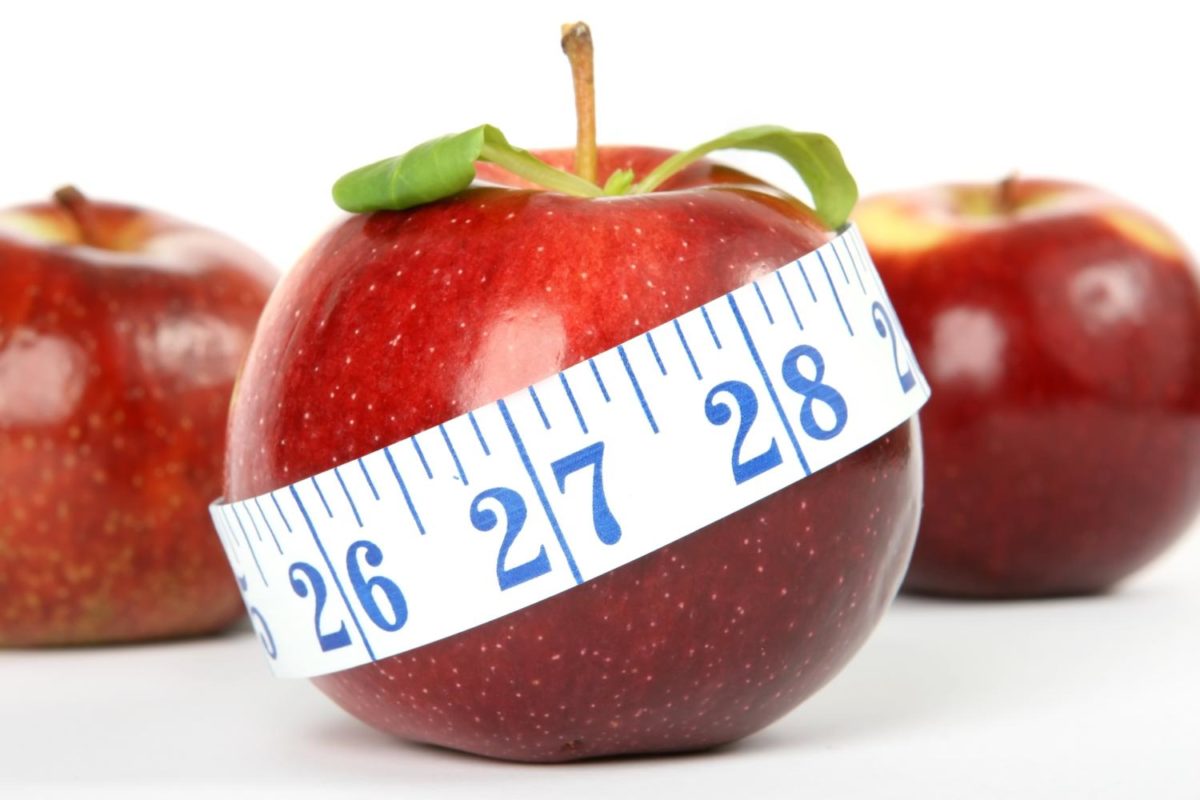Freshman 15: Fact or fiction?
As an introverted, wide-eyed freshman attending university for the first time, adjusting to college life was tough. A new campus, new friends, new classes – the list goes on. But I was ready. I had everything I could possibly need to be prepared, from brand new school supplies to enough textbooks in my backpack to permanently alter my spine. What else could there possibly be to worry about?
Apparently, my own health. My sense of comfort was promptly threatened when I first heard the age-old warning echoing among my new classmates: “Watch out for the Freshman 15!”
“Freshman 15” is the phenomenon of university students gaining 15 pounds in their first year of study. Upperclassmen are quick to inform new students of their own experiences with weight gain during the first year, and the warning “the Freshman 15 is a real thing” is often heard around university corridors. But although it is a superficial concern, putting on weight at a speedy rate is often the last thing a stressed out first-year college student needs to worry about.
A 2015 study by researchers at the Nuffield Department of Population Health at the University of Oxford found that this phenomenon we all know and hate may be false after all. The researchers conducted a search on up to 32 existing studies dating from 1980 to 2014 on first-year university weight gain and used a sample size of 5,549 students in their final report.
The study concluded that while nearly 70 percent of total freshman university students did gain weight, the average weight gained among those students was 7.5 pounds – a far cry from 15! When taking into account the entire sample of students as a whole, including those who did not put on weight, the average weight gained was even smaller: three pounds.
Whenever there was a free-food event around university, I would get it to avoid spending money on buying food.
Still, there is a catch. Gaining three pounds over the course of two semesters may not sound like much, but it still represents an increase in weight that is five times higher than what the general population gains in a year, according to the research. This could be due to “stress, alcohol drinking, unhealthy eating, and poor physical activity” at universities, the study explained.
Pascale Richa, the senior supervisor of food and nutrition in Qatar Foundation, agrees. According to her, stress, skipping meals, and a lack of exercise are all ways students can disadvantage their health. Not making sound choices when it comes to food is the main culprit for weight gain in students, said Richa.
However, there are other culprits as well. For Mohammed Osaama Shehzad, a student in his final year at Carnegie Mellon University in Qatar, an inability to afford healthy meals was the main cause of his weight gain.
“It was mainly because of financial reasons,” said Shehzad. “Whenever there was a free-food event around university, I would get it to avoid spending money on buying food.”
He says this led to his weight increasing from about 159 pounds prior to starting university to 192 pounds currently.
Other students have had different experiences with weight changes in their freshman year. Anusheh Zaman is a third-year student at Virginia Commonwealth University in Qatar, and, unlike Shehzad, she said she actually lost weight in her first year.
While Shehzad said he had never heard of the Freshman 15 before joining CMU-Q, Zaman on the other hand was warned by seniors that she would most likely gain weight. The warnings motivated her to do something about it.
“Before coming to uni, I had a fairly balanced diet but I didn’t go to the gym a lot,” said Zaman. “That changed significantly when I came here. Going to the gym and exercising almost became a daily habit and my diet pretty much stayed the same.”
Other than frequent exercise, Zaman, who lives in the student dorms but has family in Qatar, also credits avoiding stress eating and eating homemade food with her family as factors that prevented her from gaining weight.
Richa recommends that students pack homemade lunchboxes from the first day of university onward to avoid weight problems. “This could include healthy snacks on the go and cold food such as sandwiches or salads,” she said.
I’m guilty of days on end where all I do is eat junk food during my lunch break, or not eat at all, then crash to sleep at home, exhausted.
Experiencing sudden changes in your body at a time when your life is in transition is not fun. The widespread warnings of the Freshman 15, beyond the fact that it is largely exaggerated, are incredibly harmful towards young adults that are probably dealing with enough insecurities as it is. While every warning I heard came from ultimately good intentions and people just passing along what they had heard, it started to make me feel that gaining weight was a life or death situation. What I needed to hear was not a warning on how I could possibly look, but rather how my health and that of my peers could be affected if we neglected it.
The Nuffield Department of Population Health study calls for universities to recognize how critical the first year can be for students’ well-being and to “embrace their role as potential key health promoters and shapers of student health.”
Inaara Gangji, a freshman at Northwestern University in Qatar, says Education City should take charge of that role. She was alerted about the Freshman 15 by friends who were already in university and via social media. Gangji has developed a personal workout routine that is tailored to her academic schedule, but she is still concerned with what she says are not enough healthy food options within Education City.
“I feel the Student Center has mostly fast food and it’s the most convenient place for students to meet and eat. This is really unhealthy, in my opinion,” said Gangji. “The [NU-Q] cafe is not extensive either and lacks good salad or fruit options and low calorie foods. Same goes for all cafeterias in EC.”
EC should increase the amount of gym equipment and space that is more easily accessible from the dorms and educate students on nutrition planning and exercise schedules, Gangji also suggested. While the male and female student housing facilities do not have gyms, students can exercise at Education City’s Recreation Center and Student Center.
While Richa believes that there are a lot of gym spaces in Education city that are being underutilized by the QF community, she said Qatar Foundation does prioritize the health of its students.
“We, as QF Food and Nutrition services, aim to improve the health and well-being of Qatar Foundation students,” said Richa. “Qatar Foundation school meals meets requirements of Ministry of Public Health’s food guideline for school cafeteria, which ensure a healthy and balanced food intake for students. These meals [meet] the [student’s] food intake requirements set according to their age and caloric needs.”
QF believes that the students should be given the freedom to make their own decisions on what they eat based on their preferences and culture, added Richa.
QF also has a nutrition clinic at the recreation center, where students may receive guidance on their health. In addition, the Student Center provides free weekly circuit, zumba, and total body workout classes for students.
As a current senior a mere eight months away from graduating, trust me when I say that freshmen are going to face a lot more challenges in their university life beyond gaining some pounds. With that said, however, care about your health. I’m guilty of days on end where all I do is eat junk food during my lunch break, or not eat at all, then crash to sleep at home, exhausted. I personally did not gain weight during my freshman year, but this carelessness made my body feel horrible regardless.
Making a habit out of taking at least 20 minutes out of my day for a brisk walk or substituting a side of fries for carrots hasn’t turned me into Serena Williams. But I feel more energetic, more motivated, and most importantly, happier with myself. So don’t think about your health because of clickbait articles on the woes of the so-called Freshman 15. Care about it so that you can treat your body with the care it deserves.















